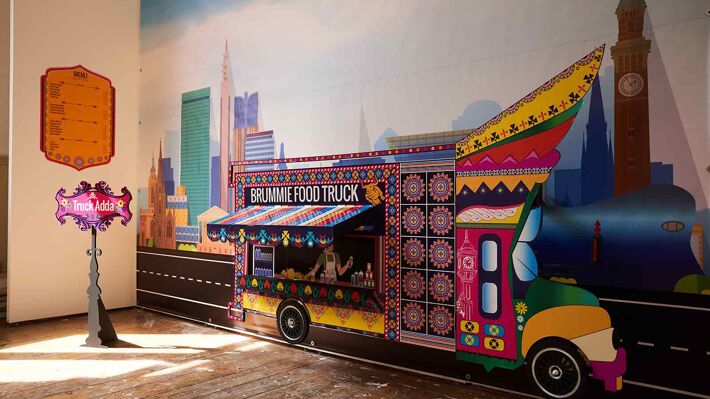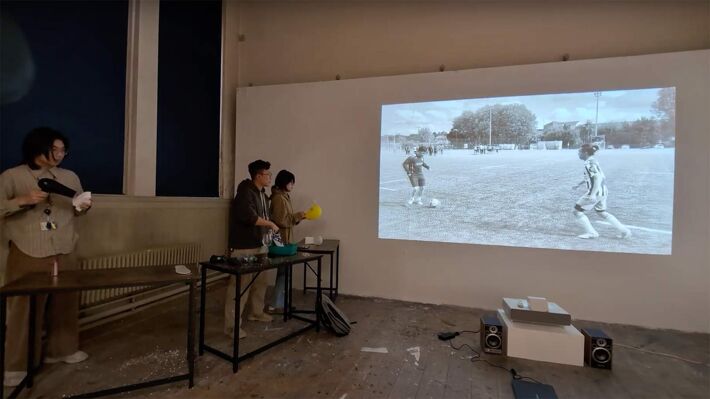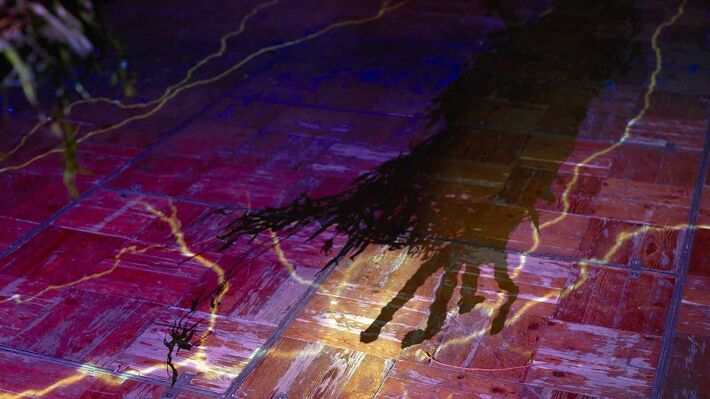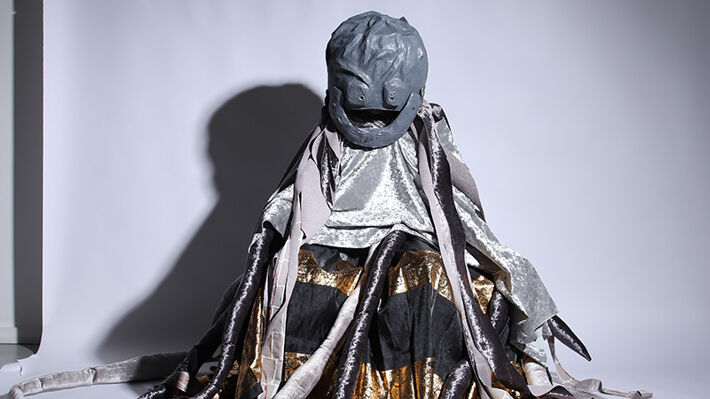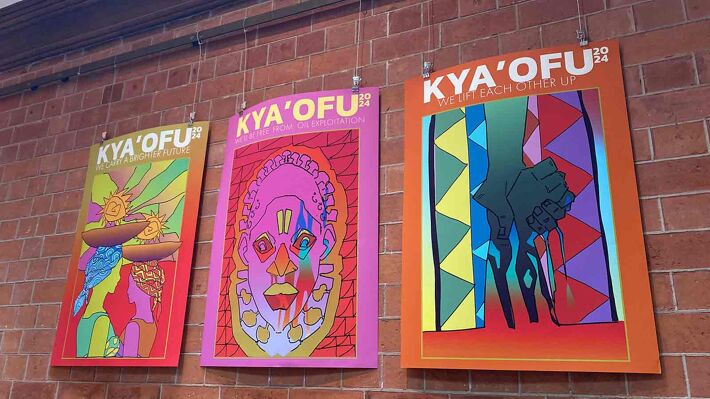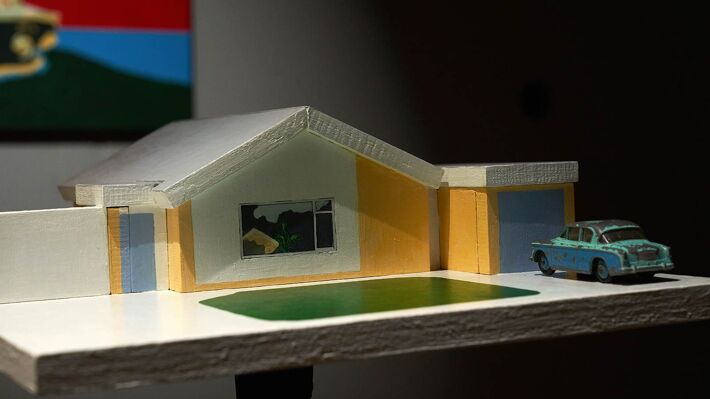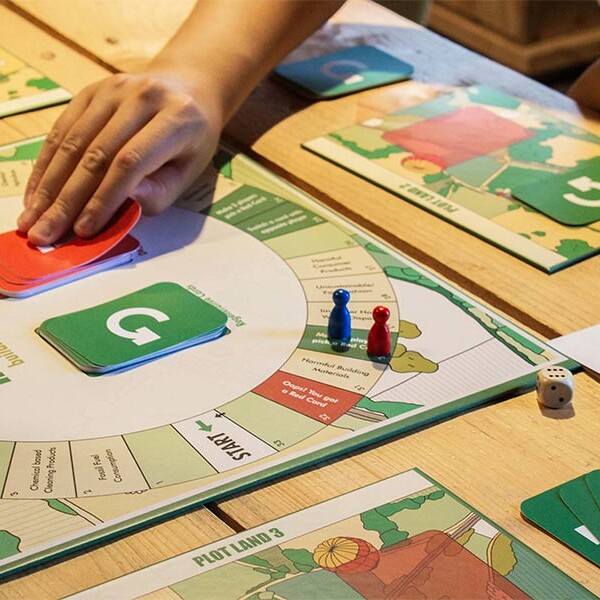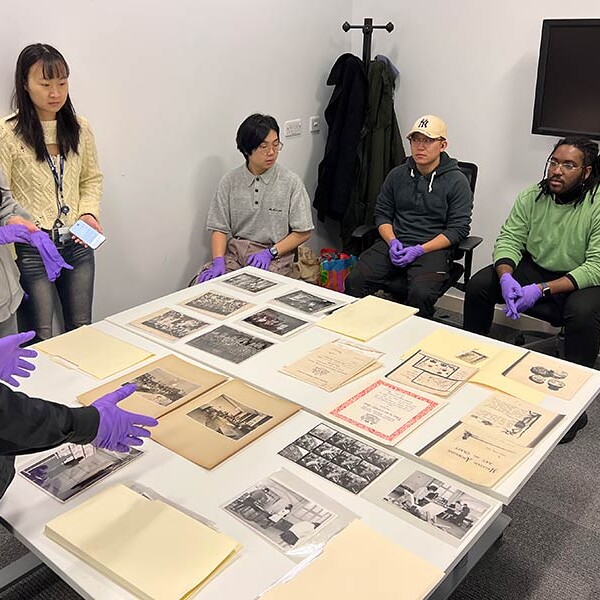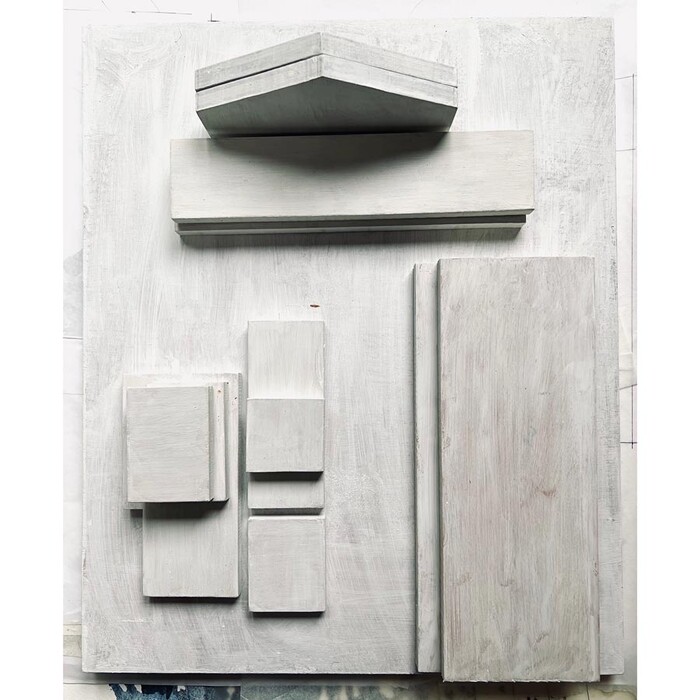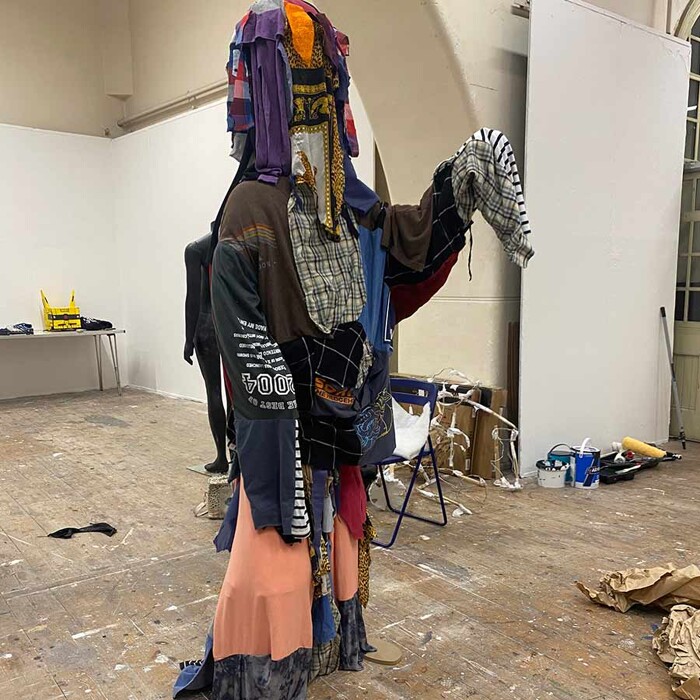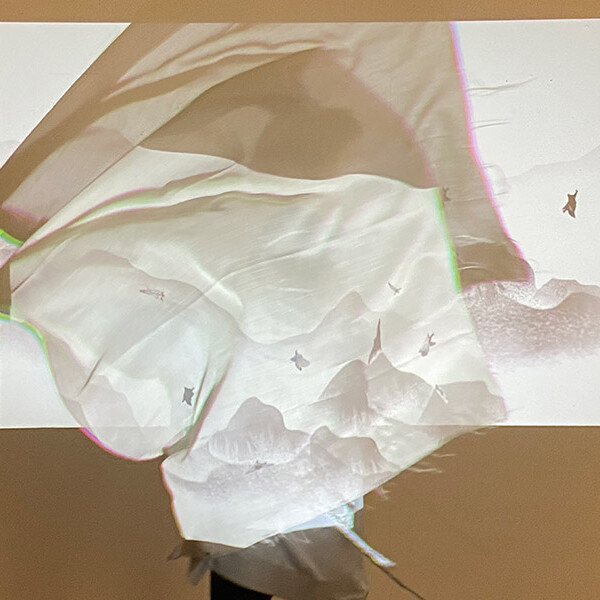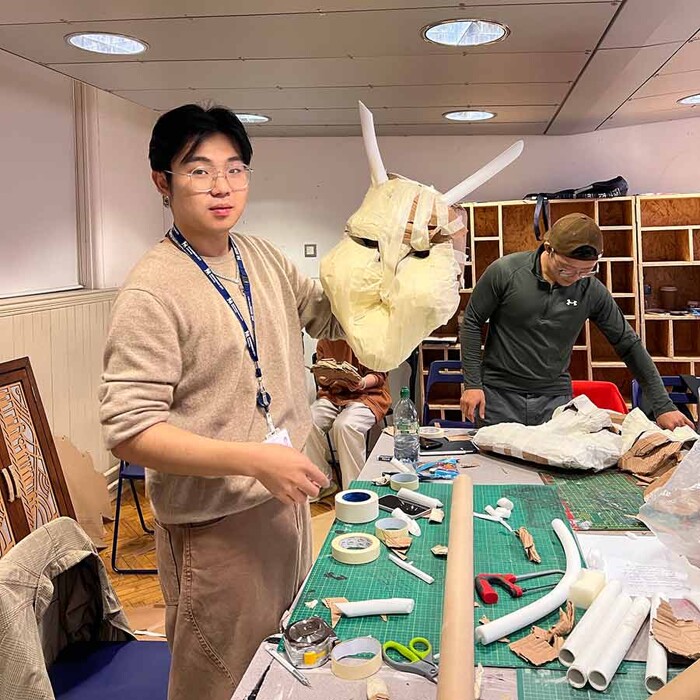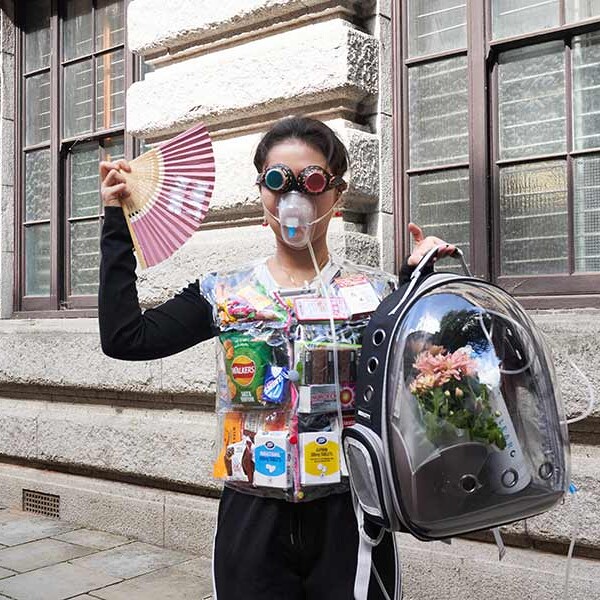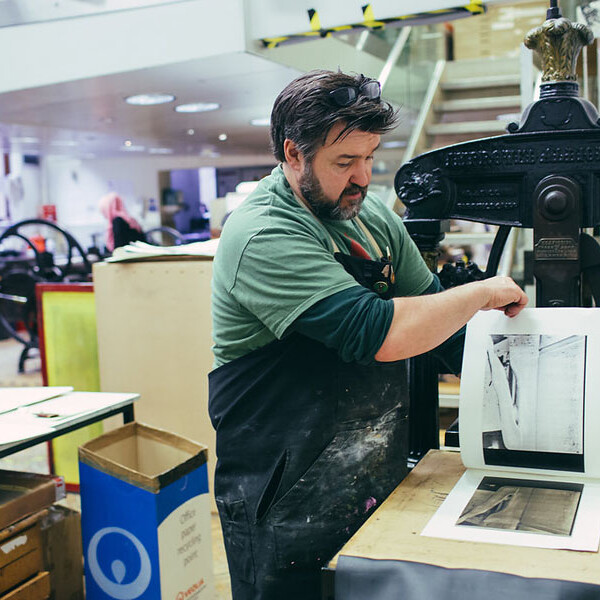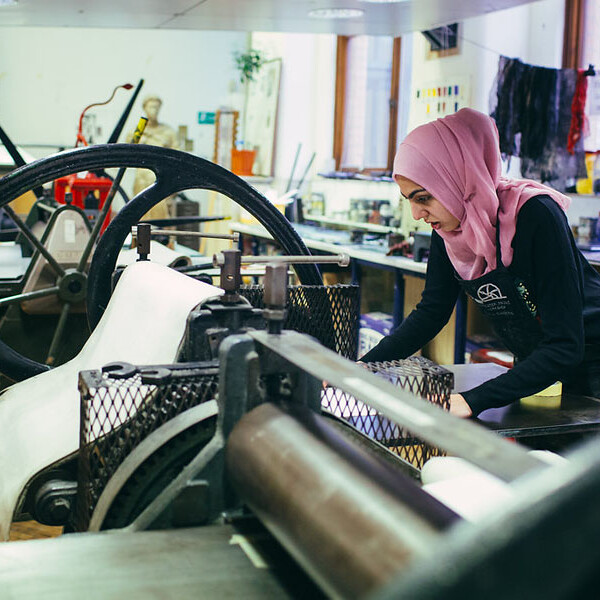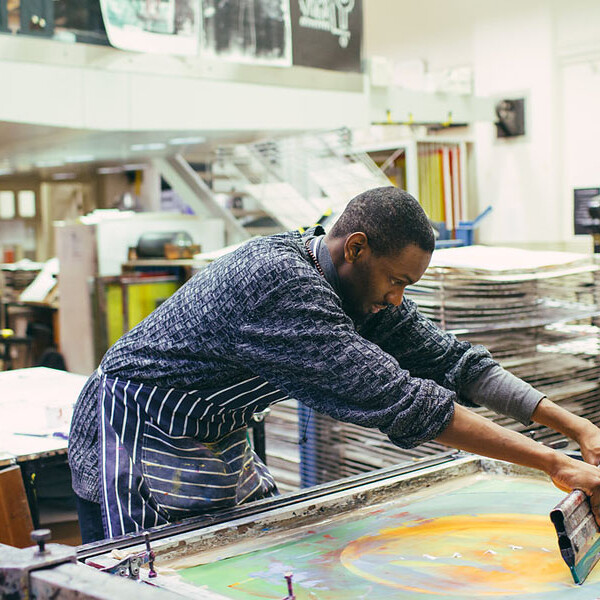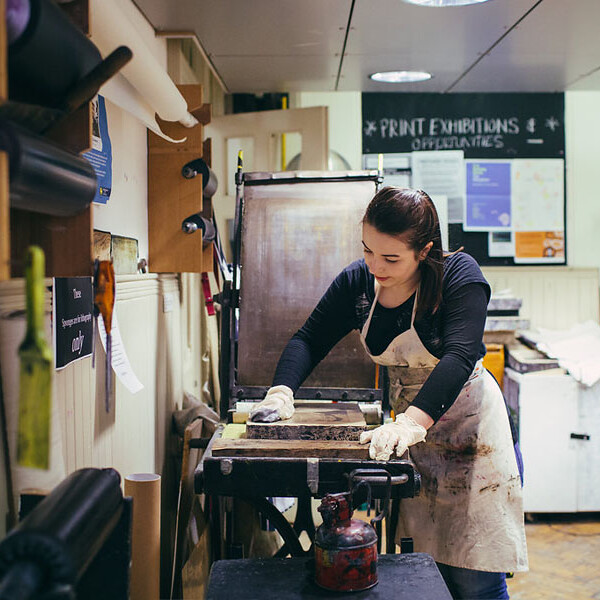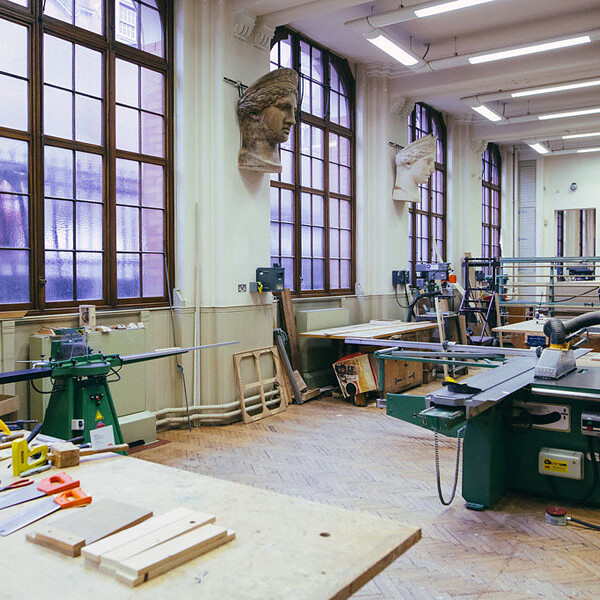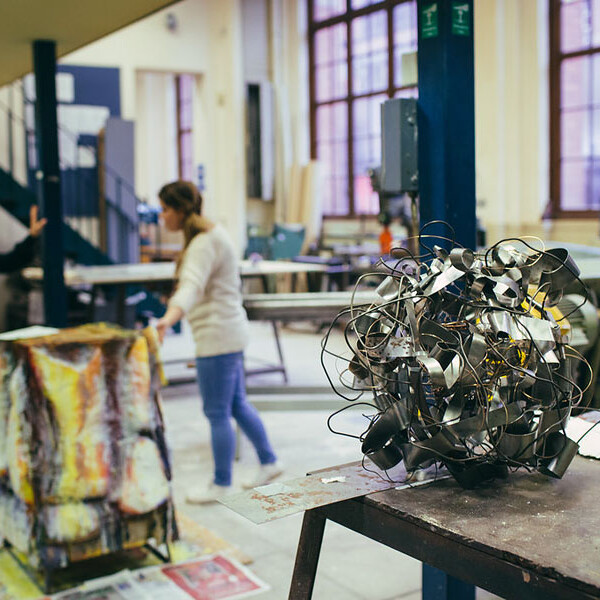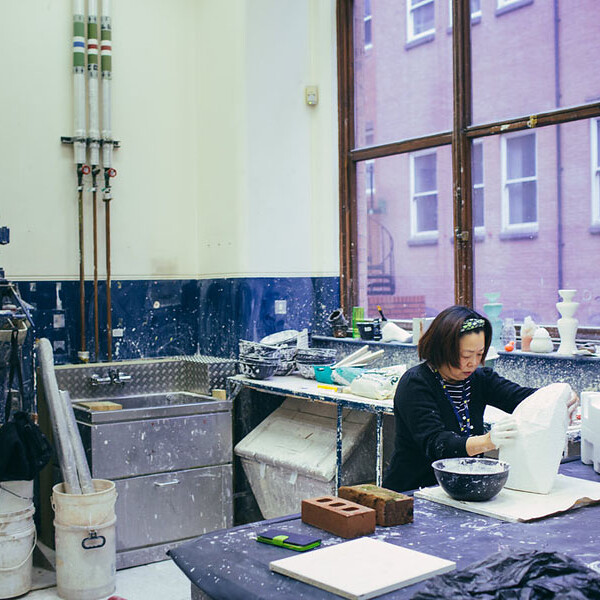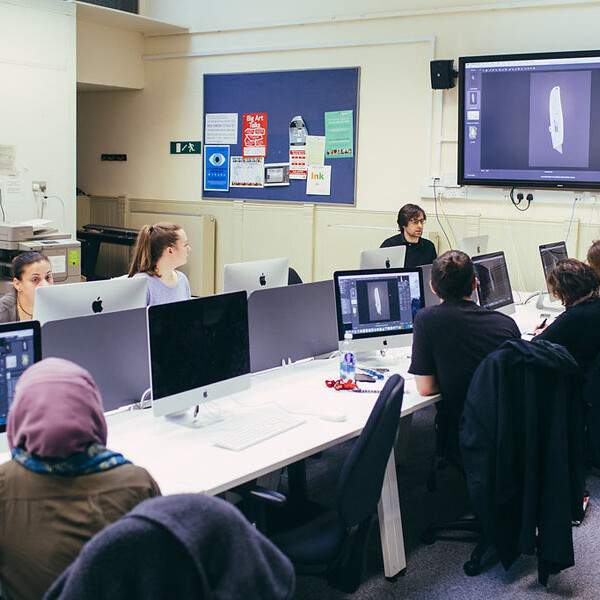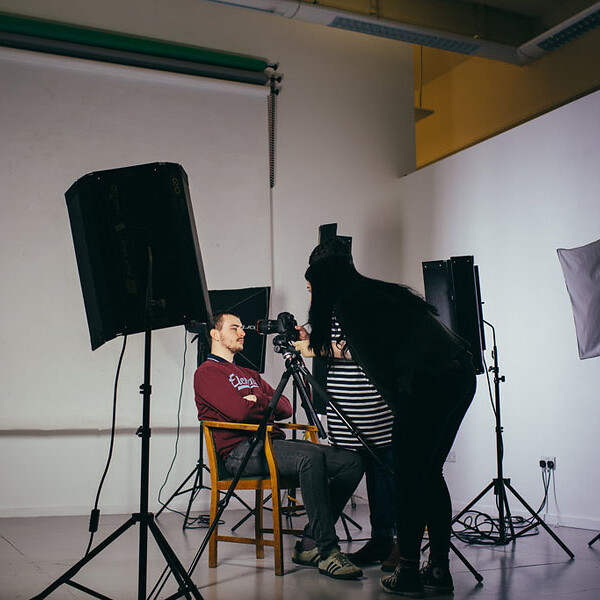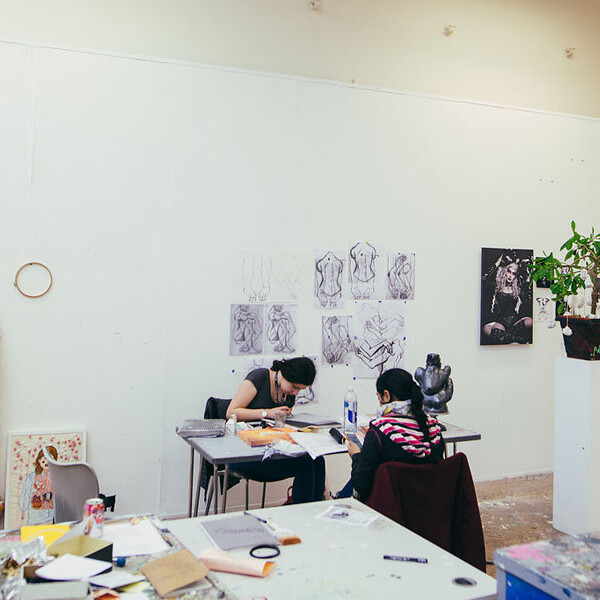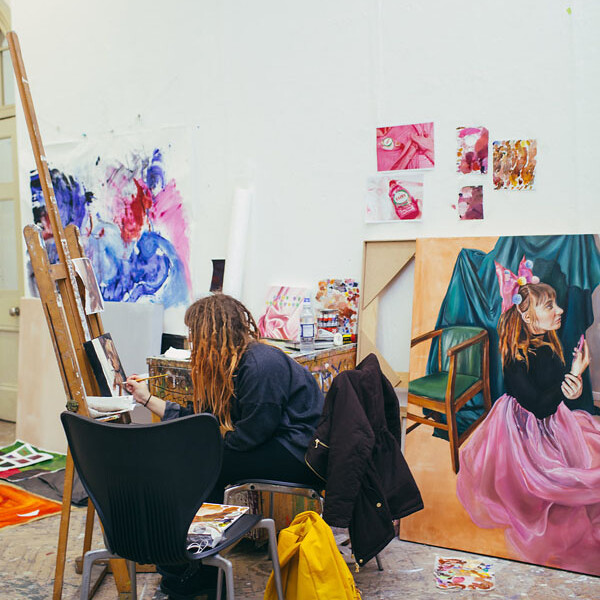Design: Active Practice - MA
Currently viewing course to start in 2025/26 Entry.
Are you passionate about using design to create a more equitable and sustainable world? MA Design: Active Practice offers a unique opportunity to rethink conventional design models through the blending of research and practice....
- Level Postgraduate Taught
- Study mode Full Time/Part Time
- Award MA
- Start date September 2025
- Fees View course fees
- Subject
- Location Margaret Street
This course is:
Open to International Students
Overview
Financial awards are available for this course. Find out more and apply now
The course has helped me develop my
skills in performance, costume
design and design production.
Before coming to the UK
I was studying visual communication
design and then I wanted to push my
practice further and
a more
interdisciplinary creative thinker.
I decided to study the course to expand my
creative practice and my skillset to
increase my chances of employability
after graduation.
As someone with hearing
impairment my work is all about
creating immersive experience
through like
performance
video
and the sound.
I want my work
to allow audience
to step into
my hearing world.
For my major project, I produced a
multi-generational educational game,
which focused on United Nations
sustainable development goals.
the project won a first prize in global
design competition and now I'm exploring
ways to make it more accessible
to the public.
Since graduating, I've used the skills
and expertise that were built during the
course in a lot of my
more current projects.
so working alongside a choreographer,
a DJ, performers
and other specialist designers
to bring some of my works to
life and more recently a performance and
like entertainment events that
Creating the board game allowed me to
explore different medium of design
through combining all
of them I can solve
complex issues that exist in the world.
It's just not about sustainability.
It's much bigger than that.
During the course, I developed a series
of traditionally hand
printed Phenakistiscopes
which were sequenced
into a short film,
based on the increases in symbiosis of humans
beings and technology over time,
and that work led to what
is my current business,
where i design
animated Zoetropes
for vinyl
for record labels
and musicians.
I've worked for a number of high profile
clients, including Take That, who I
worked for last summer and produced their
30th anniversary reissue of Everything
Changes on a Zoetrope Vinyl.
So the course enabled me to develop my
practicing areas that I hadn't really
explored before, such as printmaking and
animation, and also the theoretical
aspect was really important in terms of
digging into my interests and figuring
out how to underpin my practice from sort
of like a philosophical
theoretical point of view.
Why I wanted to study in MA before I studied
the BA in Fine Arts. I'm really
interested in how to make a really
special visual art. So after
BA I really want to go beyond
the visual art
and learn more about
my hearing and the sound experience
so that's why I wanted to choose this course
I had no idea
Which direction I was heading. But this
course really challenged me.
To think beyond just making the project.
I'm really enjoying how to find my
hearing empairment sounds like.
I can
be making the sound
and making the video
and also to
learning and doing performance
Into my project.
Are you passionate about using design to create a more equitable and sustainable world?
MA Design: Active Practice offers a unique opportunity to rethink conventional design models through the blending of research and practice.
This course empowers you to critically engage with the purpose and value of artefacts, systems, and processes, equipping you to address complex social, political, and technological challenges with innovative design solutions. By merging critical inquiry with hands-on studio work, you will develop the skills and confidence to become a leader driving transformative change in the design field.
What's covered in this course?
With a strong emphasis on social change, the course centres on learning by doing. Active design processes - such as making and dialogue - are crucial for developing competencies in design research, analysis, creative problem-solving, and prototyping. Key themes like Design Cultures, Connections, and Challenges will guide your practice-based learning through individual and collaborative projects, enhancing your teamwork and communication skills via real-world design briefs and live assignments.
Housed in the historic Birmingham School of Art, this program thrives within a vibrant research culture that welcomes practitioners from diverse backgrounds. Our dynamic studio environment fosters individual growth and collaboration, empowering you to build an impressive portfolio and expand your professional network through participation in design festivals and workshops across Europe.
Our alumni have successfully ventured into various careers, including PhD research, teaching, service design, consultancy, and tech start-ups. Many have founded multidisciplinary design collectives and community labs, showcasing the diverse paths available to you.
Join our community of forward-thinking designers and help shape a future where design drives transformative, research-led innovation. You'll graduate equipped with the skills, collaborative mindset, and leadership qualities needed to make a lasting impact in the world of design.
Professional Placement Year
This PGT course offers an optional professional placement year.
“The tutors were always on hand to help and were of great support. They were the ones who guided me through my work process, gave me confidence and, best of all, helped me gain a place at the Royal College of Art.”
Why Choose Us?
- Birmingham School of Art is celebrating 130 years of art at Margaret Street – its Grade I-listed building has been the inspiration for countless artists and practitioners of international reputation over the years. There has also been a multi-million-pound investment in facilities for photography, casting, woodwork, metalwork, silk screen, etching, 3D printing, laser cutting, and printed and constructed textiles.
- You'll instantly become part of the Faculty of Arts, Design and Media’s 6,000-strong student community, and you will be supported by our highly experienced staff, who are all nationally and internationally active artists.
- You will curate exhibitions, have the opportunity take part in work placements and exchanges, and go on national and international study visits.
- Each year the onsite project space, the International Project Space (IPS), will be the hub for a series of residencies, exhibitions and events, and we will work with a number of local, national and international partners to deliver a range of projects with our students.
- Part-time option: Unlock your career potential with our flexible part-time route which lets you balance study with work and personal commitments. Gain specialised skills and apply them in real-time, enhancing both your academic and professional growth. Part-time mode allows you to go at your own pace, with financial stability and networking opportunities to propel you forward.
OPEN DAY
Join us for an Open Day where you'll be able to learn about this course in detail, chat to students, explore our campus and tour accommodation. Booking isn't open for this event yet, register your interest and we'll let you know as soon as booking goes live.
Next Event: 28 June 2025
Entry Requirements
Essential requirements
Applicants are normally expected to have a minimum of a 2:2 honours degree, or equivalent, in Art and Design, Fine Art or another Arts-based degree course.
We also welcome applications from individuals who may not satisfy the normal entry requirements, but have equivalent qualifications and experience. These will be considered on an individual basis.
Applicants will also need to submit a good portfolio.
Applying with international qualifications
See below for further information on applying as an international student.
If you have a qualification that is not listed, please contact us.
Fees & How to Apply
UK students
Annual and modular tuition fees shown are applicable to the first year of study. The University reserves the right to increase fees for subsequent years of study in line with increases in inflation (capped at 5%) or to reflect changes in Government funding policies or changes agreed by Parliament. View fees for continuing students.
Award: MA
Starting: Sep 2025
Pathway: MA Design: Active Practice (Full Time)
- Mode
- Duration
- Fees
- Full Time
- 1 year
- £9,190 in 2025/26
Award: MA
Starting: Sep 2025
Pathway: MA Design: Active Practice (Part Time)
- Mode
- Duration
- Fees
- Part Time
- 18 months
- Show fees
- £1022 per 20 credits
- Year 1 - 80 credits
- Year 2 - 100 credits
Fees for Part-time students
This course can be studied on a Part-time study basis. The cost per year of study is based on credit requirements for that year.
Award: MA
Starting: Sep 2025
Pathway: MA Design: Active Practice with Professional Placement
- Mode
- Duration
- Fees
- Full Time
- 2 years
- £10,110 in 2025/26
International students
Annual and modular tuition fees shown are applicable to the first year of study. The University reserves the right to increase fees for subsequent years of study in line with increases in inflation (capped at 5%) or to reflect changes in Government funding policies or changes agreed by Parliament. View fees for continuing students.
Award: MA
Starting: Sep 2025
Pathway: MA Design: Active Practice (Full Time - International)
- Mode
- Duration
- Fees
- Full Time
- 1 year
- £18,600 in 2025/26
Award: MA
Starting: Sep 2025
Pathway: MA Design: Active Practice with Professional Placement (International)
- Mode
- Duration
- Fees
- Full Time
- 2 years
- £20,460 in 2025/26
Application deadlines
We advise you to apply early to allow sufficient time for you to prepare to start your studies in September. Please apply by Friday 18 July to allow time to arrange accommodation, student finance and visas where required.
Late applications will be accepted where places are still available, but please note that Welcome Week begins on Monday 15 September 2025, and teaching begins on Monday 22 September 2025. International students are invited to arrive from Monday 8 September 2025.
To find out more, see our application timeline.
Portfolio guidance
If you receive an offer to study this course, you will be required to submit a portfolio.
Please see our portfolio guidance page for tips on putting your portfolio together.
Personal statement
You’ll need to submit a personal statement as part of your application for this course. This will need to highlight your passion for postgraduate study – and your chosen course – as well as your personal skills and experience, academic success, and any other factors that will support your application for further study.
If you are applying for a stand alone module, please include the title of the module you want to study in your Personal Statement.
Not sure what to include? We’re here to help – take a look at our top tips for writing personal statements and download our free postgraduate personal statement guide for further advice and examples from real students.
Course in Depth
Modules
In order to complete this course you must successfully complete all the following CORE modules (totalling 160 credits):
This studio brief-led module introduces design as an evolving field by posing two fundamental questions: "Design for what?" and "Design as what?" It explores the interrelationships between design disciplines and the intra-relationships of creative design processes to address complex issues and realities.
This module introduces you to creative research methods and methodologies used in arts and design production. The focus here is on research through practice, where practice itself serves a research purpose. Through the analyses and synthesis of appropriate research tools you will deepen understanding of your own work, whilst querying what it is you might research and how you might achieve your aim.
Building on your previous theoretical and practical learnings, this module invites you to delve deeper into identifying key themes, topics, and creative methodologies within the categories of Design Artefact and Design Action. You will engage in activities and research that seamlessly integrate artefact- and action-oriented approaches, combining theoretical insights with practical applications to address pressing social, political, environmental, and technological issues.
How can design serve as a tool for radical imagination, offering new possibilities for how society might be structured, how people relate to one another, or how we might interact with our environment—envisioning “other possible worlds” that challenge our current reality?
The purpose of the Professional Project module is to enable you to undertake an in-depth and theoretically informed research project exploring an area that is of personal interest to you. This master’s module should be viewed as a first step in your professional progression rather than a final step in the degree.
In order to complete this course you must successfully complete at least 20 credits from the following indicative list of OPTIONAL modules.
This module provides an opportunity for you to apply your knowledge and skills to an external, professional brief. The brief will be ‘real’, set in negotiation with an external client/agency/community, or it may be a simulation, inspired by a typical professional scenario you might experience in a work situation. The brief will enable you to apply your discipline-specific skills broadly, collaborating with your fellow students and, where relevant, across disciplines and with other stakeholders.
Creative careers often lead individuals on unexpected journeys, traversing diverse paths. Recognizing and seizing opportunities becomes pivotal in shaping a fulfilling portfolio career - one that harnesses your creative abilities while sustaining your livelihood. Whether you’re crafting artistic artifacts, performing, providing services, or offering consultancy, the art of promoting and pitching ideas lies at the heart of an independent, entrepreneurial journey.
Central to this experience is a 70-hour work placement, which you can complete either in a concentrated block or spread out over the duration of the module. During this placement, you’ll have the opportunity to develop your professional attributes and subject-specific skills. To closely align with real-world job market conditions, you should expect to prepare a current and relevant CV, attend interviews, conduct research in order to source your own placement.
Support will be available from academic staff and the ADM Careers+ service to assist you in securing your placement.
Professional Placement
In order to qualify for the award of MA Design: Active Practice with Professional Placement, a student must successfully complete all of the Level 7 modules listed above as well as the following Level 6 module:
This module is designed to provide you with the opportunity to undertake a credit bearing, 20-week Professional Placement as an integral part of your Master’s Degree.
The purpose of the Professional Placement is to improve your employability skills which will, through the placement experience, allow you to evidence your professional skills, attitudes and behaviours at the point of entry to the postgraduate job market. Furthermore, by completing the Professional Placement, you will be able to develop and enhance your understanding of the professional work environment, relevant to your chosen field of study, and reflect critically on your own professional skills development within the workplace.
Download course specification
Download nowEmployability
Enhancing employability skills
You will learn a range of skills which will be key to enhancing your future employability.
Specifically, you will learn to:
- Develop your own practice and how to analyse this in relation to future employment options.
- Identify the relationship of theory to practice and how this can be used to develop your own individual identity.
- Negotiate, plan exhibit and present to a professional standard.
- Work independently and collaboratively.
- Be a self-motivated, organised, effective learner.
You will also learn skills in a range of workshop practices in relation to individual development, including photography, casting, woodwork, metalwork, silk screen, etching, 3D printing, laser cutting, and printed and constructed textiles.
Professional practice guidance will teach you a range of skills such as CV writing; the use of social media and other platforms for self-promotion, presenting yourself and your work in a professional framework using a range of appropriate communication skills, such as video and various types of presentation software.
Links to Industry
The College of Art and Design has a wide array of links with partner organisations regionally, nationally and internationally. These partnerships will provide work experience opportunities for you, and contribute to your learning and teaching activities. Our overseas partnerships often result in opportunities for you to mix with students from different countries and gain different perspectives, as well as opportunities to undertake a period of study overseas.
Regional - Birmingham Museum and Art Gallery, Ikon Gallery, Eastside Projects, Midlands Art Centre, New Walsall Gallery, The Mead Gallery, VIVID, Capsule, Grand Union, Queen Elizabeth Hospital, Birmingham Children’s Hospital, Hippodrome, the REP, the new Library of Birmingham, Primary and Secondary Schools across the region.
National - Arts Council England, Tate Britain, Tate Modern, Tate Liverpool.
International - Established links with other significant institutions both in Europe and the USA, as well as in Canada, Russia and Japan.
Other institutions include:
These include: The Sorbonne, the Metz/Pompidou (France); Studio for Electronic Instrumental Music, The Hague (Netherlands); Ars Electronica (Austria); University of Cologne, Free University of Berlin, Leipzig Academy of Art (Germany); University of Ljubljana (Slovenia); MIT List Visual Arts Center, Massachusetts College of Art, California Institute of the Arts, University of California (USA); Pacific Centre for Technology and Culture (Canada); Institute of Advanced Media Arts and Sciences (Japan); The Laboratorium (Russia).
Placements
You will have the option of an international exchange, and the opportunity to get involved in a range of projects and placements.
Our students have recently been on placements with the Birmingham Repertory Theatre, working with and alongside sculptor Rob Olins on a recent production of ‘The BFG’.
Students have also worked with the sound artist, Justin Wiggan, exploring the University archives in relation to the school of Art to create site-specific work.
The Fierce Festival and the Flatpack Festival regularly work with our Fine Art students.
Facilities & Staff
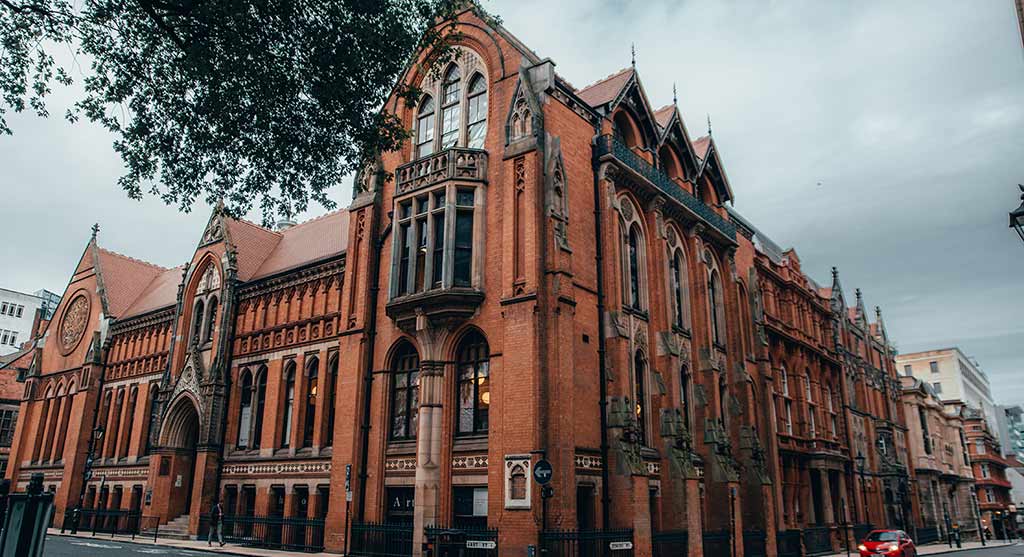
Our Facilities
We are constantly investing in our estate and are currently in the process of spending over £400 million on new learning facilities.
Birmingham School of Art (an impressive purpose built Grade 1 listed example of Venetian Gothic architecture) was the first major renovation project undertaken by the university (£5.5m refurbishment). The School provides an incredible resource for the production of art and its associated fields of study. The building has a range of facilities available including studios, workshops, specialist art and design library, bookable spaces and lecture/seminar rooms.
Our staff
Demitrios Kargotis
Course Leader: MA Design: Active Practice
Demitrios Kargotis works as part of the design action group Dash n’ Dem. Since 2010, their wide-ranging participatory projects centre on popular education and critical and creative citizenship participation. The open-ended, collaborative structure of their practice explores how co-creation can act as a form of activism that empowers...
More about Demitrios